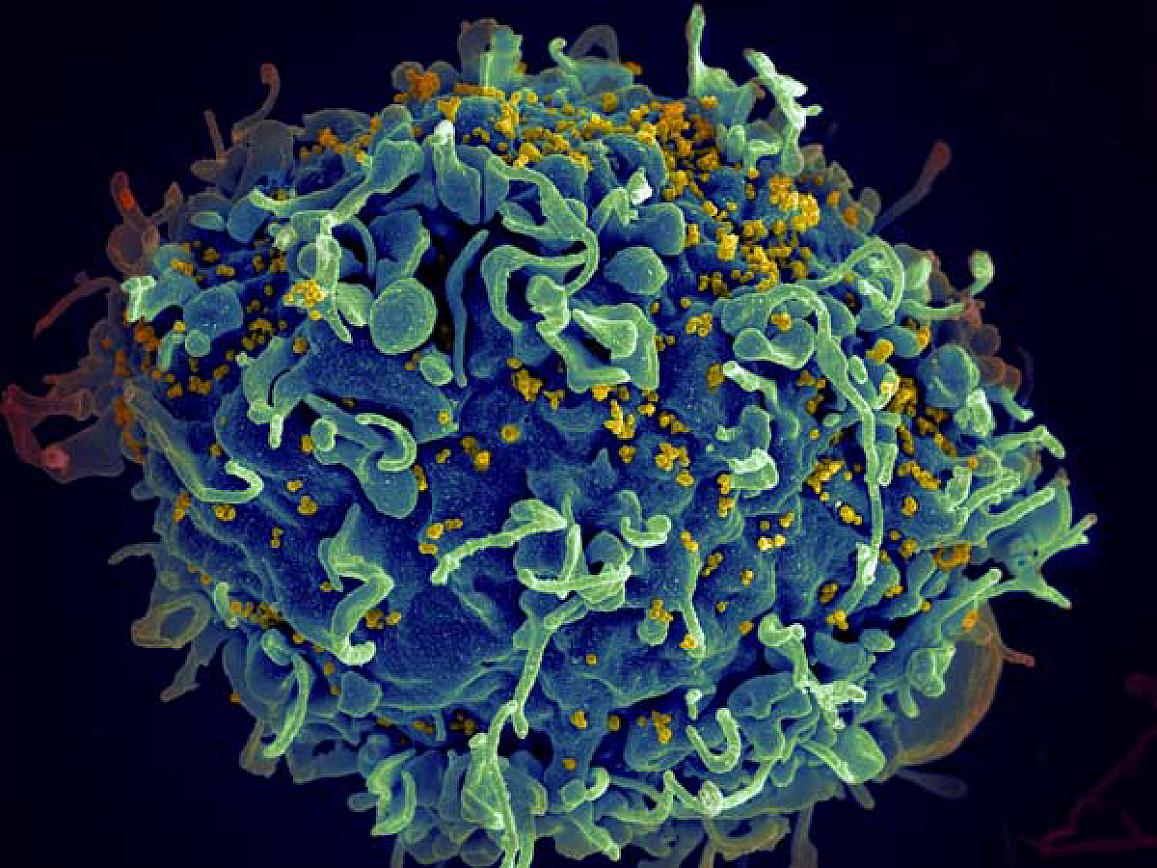Genetically altered broadly neutralizing antibodies protect monkeys from HIV-like virus
IRP scientists report single dose elicited long-term protection
Two genetically modified broadly neutralizing antibodies (bNAbs) protected rhesus macaques from an HIV-like virus, report scientists at the National Institute of Allergy and Infectious Diseases (NIAID), part of the National Institutes of Health. After introducing genetic mutations into two potent HIV bNAbs, researchers prepared intravenous infusions of two bNAbs known as 3BNC117-LS and 10-1074-LS. Single infusions of each modified bNAb protected two groups of six monkeys each against weekly exposures to simian-human immunodeficiency virus (SHIV) for up to 37 weeks, compared with a median of three weeks in 12 monkeys receiving no antibody. SHIV is a manmade virus commonly used in HIV nonhuman primate studies.
The study, led by Malcolm A. Martin, M.D., chief of the NIAID Laboratory of Molecular Microbiology, also assessed the efficacy of injecting a combination of both modified bNAbs into six monkeys subcutaneously — a route of administration considered more feasible in resource-limited clinical settings. This bNAb mixture, administered at a three-fold lower concentration than the individual antibodies infused intravenously, protected this group of monkeys for a median of 20 weeks.

This human T cell (blue) is under attack by HIV (yellow), the virus that causes AIDS. The virus specifically targets T cells, which play a critical role in the body's immune response against invaders like bacteria and viruses.
This page was last updated on Friday, January 21, 2022